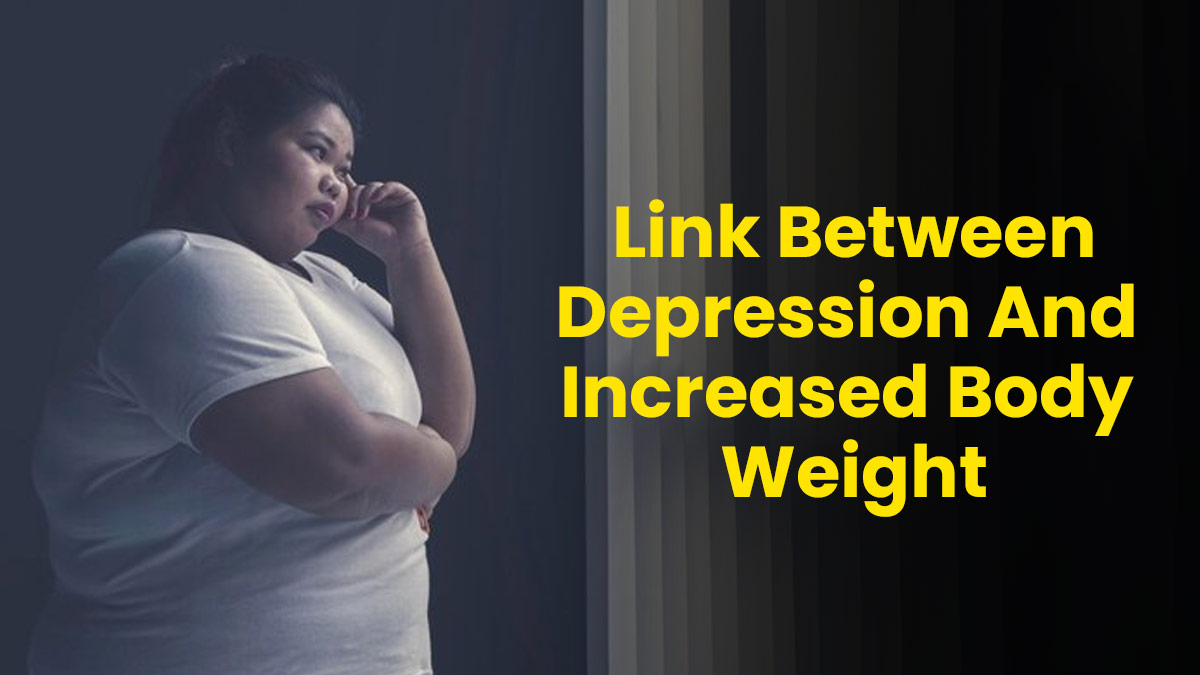
Our mental and physical well-being are deeply connected, affecting each other in intricate ways. One example of this connection is between depression and body weight. Many people facing depression often find themselves experiencing changes in their body weight. Similarly, those who struggle with obesity are more likely to face challenges with depression. To understand this mechanism, we spoke to Archana Singhal, Founder, Mindwell Counsel, Counsellor and Family Therapist, Delhi, who helped us understand why depression often leads to an increase in body weight and how to address it effectively.
Table of Content:-
According to a 2023 study, depression, marked by low mood, loss of interest or pleasure in life, and disrupted sleep or appetite, affects over 300 million people worldwide. It has a global prevalence of 7% among women and 4% among men.
Understanding the Connection

According to BMC Psychiatry, obesity and depression are interconnected, with both being recognised risk factors for cardiovascular disorders and diabetes. They are also associated with negative health and lifestyle factors, including disturbed sleep patterns, sedentary behaviours, and dysregulated appetite and food intake.
As per a 2010 meta-analysis, it was found that men and women with obesity had a 55% higher risk of developing depression, while those with depression had a 58% higher risk of becoming obese.
Emotional Eating

“Depression often triggers emotional eating, where individuals use food to cope with their feelings. This can lead to overeating, particularly high-calorie, sugary, and fatty foods, contributing to weight gain,” said Singhal.
According to a 2023 study, stress and negative moods can impact appetite in opposite ways, causing some people to eat more and others to eat less. Emotional overeating and emotional undereating are behaviours that have been linked to the emergence of eating disorders and weight issues.
Also Read: Mental Health Matters: Expert Lists Things You Should Know Before You Go For Depression Screening
Reduced Physical Activity
Depressed individuals frequently experience fatigue and a lack of motivation, making it challenging to maintain regular physical activity. This sedentary lifestyle can result in weight gain over time.

Metabolic Changes
Depression can alter the body’s metabolism. The stress hormone cortisol is often elevated in depressed individuals, which can lead to increased fat storage, especially around the abdomen.
Medication Side Effects

Antidepressants and other psychiatric medications can sometimes cause weight gain as a side effect. This can be frustrating for patients, creating a cycle of depression and weight gain.
A 2018 study found that antidepressants increase the risk of weight gain, with the extent depending on the type of antidepressant. Those in their second year of using antidepressants had a 46.3% greater risk of gaining at least 5% body weight compared to people not using them. These findings were consistent across various demographics.
Sleep Disturbances
“Depression is commonly associated with sleep problems, such as insomnia or oversleeping. Inadequate sleep can disturb the hormones responsible for regulating hunger, resulting in increased appetite and weight gain,” added Singhal.
Also Read: Menopause And Depression: Expert Explains Their Connection, Causes, And Management Measures
Addressing the Issue
Here are some tips shared by the expert to help you manage this issues effectively:

- Therapeutic Interventions: Cognitive Behavioural Therapy (CBT) and other therapeutic approaches can help individuals manage their depression and develop healthier coping mechanisms instead of turning to food.
- Lifestyle Modifications: Encouraging regular physical activity, even in small amounts, can help improve mood and combat weight gain. Activities, such as walking, yoga, or even dancing can be beneficial.
- Nutritional Guidance: Working with a nutritionist can help individuals make healthier food choices. A balanced diet rich in fruits, vegetables, lean proteins, and whole grains can support both mental and physical health.
- Medication Management: Regular consultations with healthcare providers are essential to monitor medication effects and make necessary adjustments. In some cases, switching medications can mitigate weight gain problems.
- Support Systems: Building a strong support network, including friends, family, and support groups, can provide emotional support and encouragement, making it easier to manage both depression and weight.
Bottomline
Singhal concluded, “Understanding the link between depression and increased body weight is crucial for addressing both issues effectively. By recognising the signs and implementing a comprehensive approach that includes therapy, lifestyle changes, and support, individuals can break the cycle of depression and weight gain. Taking proactive steps to address these interconnected issues can lead to improved quality of life and better health outcomes.”
[Disclaimer: This article contains information provided by an expert and is for informational purposes only. Hence, we advise you to consult your own professional if you are dealing with any mental health issues to get the necessary treatment.]
Also watch this video
How we keep this article up to date:
We work with experts and keep a close eye on the latest in health and wellness. Whenever there is a new research or helpful information, we update our articles with accurate and useful advice.
Current Version
Jun 10, 2024 11:27 IST
Published By : Sushmita Sharma